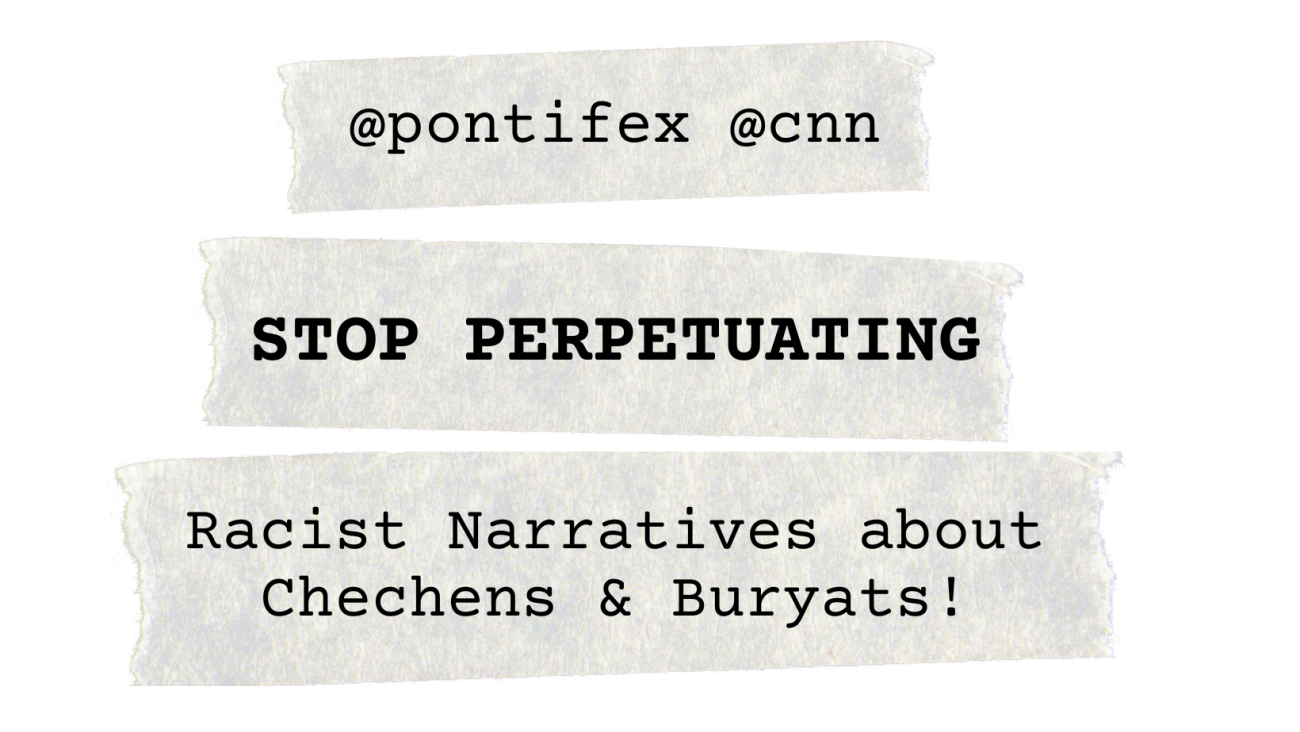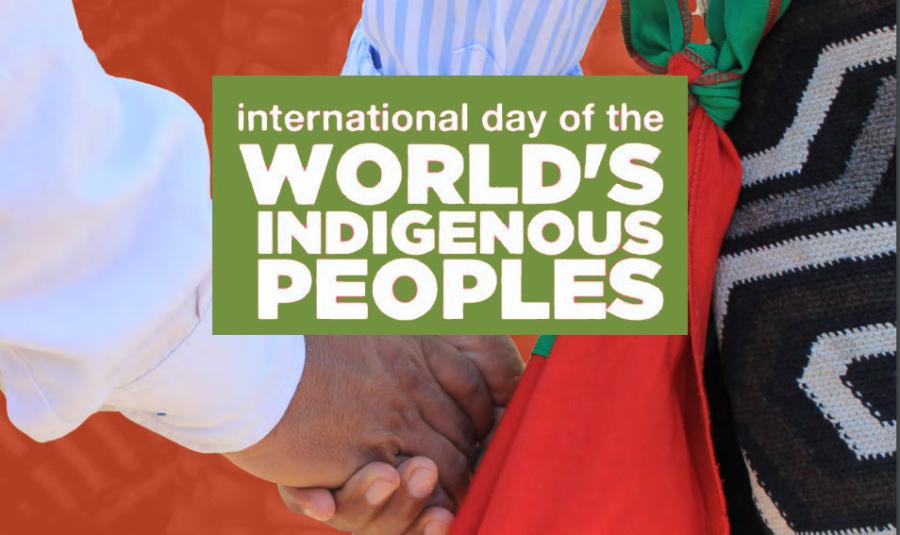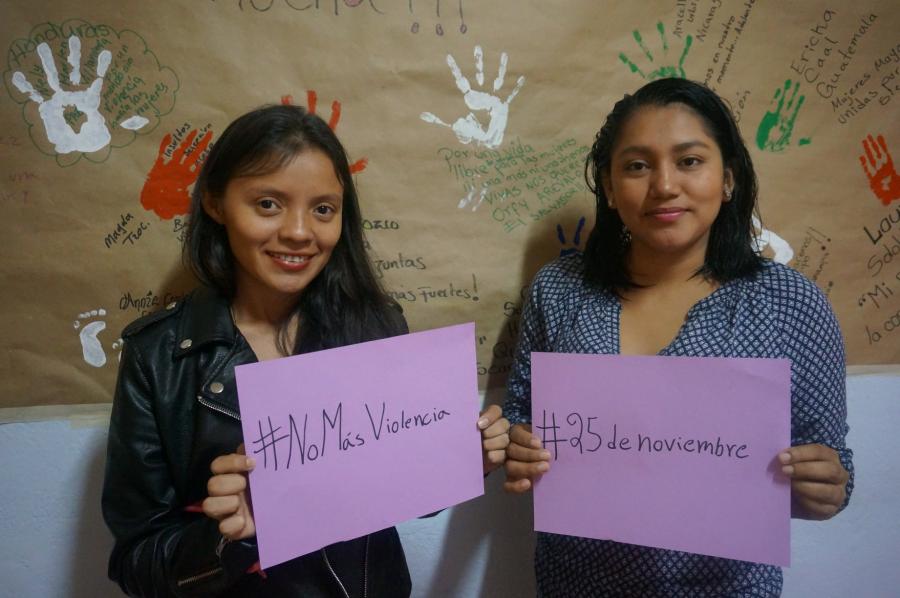
Sign on to our collective statement.
In a recent interview, Pope Francis mentioned Chechens and Buryats as the “cruelest” perpetrators of the war in Ukraine. “When I speak about Ukraine, I speak about the cruelty because I have much information about the cruelty of the troops that come in. Generally, the cruelest are perhaps those who are of Russia but are not of the Russian tradition, such as the Chechens, the Buryati and so on,” the Pope shared in an interview with America The Jesuit Review magazine published on November 28, 2022. CNN reported on the Pope’s remarks on November 29, but mainstream media in Europe and the U.S. has previously amplified this misinformation, which is steeped in racism. On August 9, 2022, coincidentally International Day of the World's Indigenous Peoples, journalist and author of "Killer in the Kremlin" John Sweeney in an interview with CNN stated, “On the outskirts of Bucha…the Russian soldiers we saw weren’t ethnic Russians, they were Buryats, Mongols…” implying Buryats and Mongols were solely responsible for the atrocities.
Enough is enough!
We denounce this racist and hateful rhetoric and call the world’s attention to the fact that these narratives are created and promoted by the Russian State, which is now attacking Ukrainian independence. Minorities and Indigenous Peoples in Russia face stereotypes, discrimination, and marginalization, and Russian propaganda has deliberately used them as faces of the war in order to distance violence and injustice from the Russian political regime. The Pope’s repetition of Russian propaganda is an ill-informed and dangerous accusation that perpetuates harmful, racist and colonial myths that stem from Russia’s long and violent imperial history. These accusations by the Pope are forms of double colonialism, genocide, and a horrific history set to repeat.
The Russian Federation is home to millions of people of diverse ethnicities, including Indigenous populations spread across roughly two-thirds of Russian territory and representing 2% of that region’s population. There are 47 Peoples recognized as Indigenous under Russian law and defined as “Indigenous small-numbered Peoples of the Russian Federation.” Within the Federation, to be recognized as “Indigenous”, a group must fit distinct qualities, including numbering under 50,000 individuals, practicing traditional customs, inhabiting a remote area, and maintaining a distinct ethnic identity. This State-imposed definition prevents approximately 140 Indigenous Peoples, including Buryats, Altaians, Sakha, and Peoples of southwestern Russia, from claiming Indigenous rights through official recognition by Russia.
Many see Putin’s recent forced mobilization of soldiers for the war against Ukraine as an “ethnic cleansing of Indigenous Peoples” as it has disproportionately affected ethnic and Indigenous people in Russia.
This summer, Pope Francis made an apology to Indigenous Peoples in Canada for the Church's role in the genocidal atrocities that took place at boarding schools and apologized for the "colonizing mentality" of the times. But his latest interview with America shows that colonial mentality is yet to be overcome. As the head of the Catholic Church, the Pope needs to acknowledge the Church’s role in past atrocities around the world and actively work to stop the perpetuation of racist, colonial narratives.
We, representatives of Indigenous Peoples, other nations, and civil society:
-
Demand the Pope apologize to Chechens and Buryats for perpetuating colonial stereotypes. Whole Peoples should not be vilified and blamed for the actions of the Russian State.
-
Strongly encourage Pope Francis to meet with Indigenous Peoples from Russia to start a discussion about overcoming the stereotypes of our common colonial history.
-
Also demand that mainstream media, like CNN, recognize their role in sustaining these stereotypes and call them out outright.



